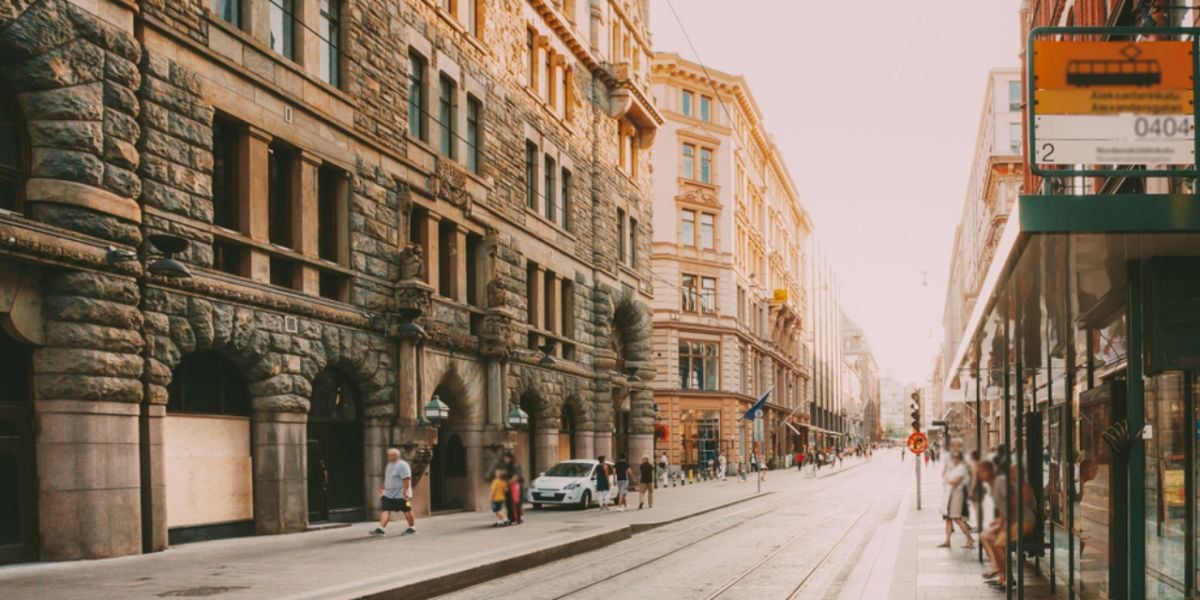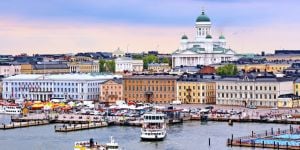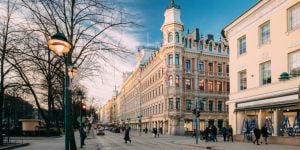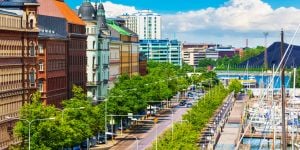
In Finland, urbanisation is accelerating, and people are flooding to the south and particularly Helsinki Metropolitan area. Therefore, house prices are surging even if there has been a construction boom. One reason for high prices is that a fairly large number of flats are kept uninhabited, even empty. Incentives to rent out may not be sufficient to rent them out.
Choosing your neighbourhood in Helsinki
In late 2019, the average price per square metre of flats in Helsinki is around 4,700 euros. That said, there are considerable differences between areas. The gap is growing wider. Some parts of the city, especially the ones with older flats, are getting more expensive. At the same time, some suburbs have witnessed sinking prices.
Obviously, choosing an area and a place to live goes naturally down to personal and individual preferences. Some are city people; others want to be close to nature and are more at home in suburban surroundings. Suburbs may be more suitable for families with kids since there is a lack of big enough flats with enough rooms, especially in downtown areas.
Helsinki has contradictions to offer. If you are a fan of brutal, concrete modernism, your choice might be Merihaka. Or, if you enjoy gardening and bohemian lifestyle try to make your home in the wooden houses of Käpylä, an area which took its inspiration from the English garden towns.
Upscale neighbourhoods in Helsinki
Unsurprisingly, the “wealthiest” and most pricy areas are situated in downtown and its vicinity. With just a little exaggeration, blocks and corners south of Boulevard are to some extent out of reach for normal taxpayers and wage earners. On the map, Eira, Kaartinkaupunki and Kaivopuisto equal wealth – inherited or newly acquired. In case you are planning a purchase a property, prepare to pay roughly 10,000 euros per square metre.
The very bourgeoisie are also Kruununhaka and Töölö, initially built for and occupied by the growing army of civil servants during the 1920s and 1930s. However, the picture is more varied in those quarters. Many families have lived in those somewhat sleepy parts of the town generation after another. Especially Töölö has a reputation of being like an old-folks home. But, today, student communes behind those prestigious walls are also quite common.
Other areas more on the expensive side are the ones close to the sea. Like everywhere else, people are willing to pay for the feel of the breeze and the view on the horizon. Three islands have to be mentioned: Lauttasaari on the western side, Kulosaari in the east and especially Kaskisaari – Helsinki's very own Beverly Hills, home of the Formula One drivers and their families.
Over the last ten years or so, Helsinki has taken back many of its shorelines and wastelands that used to be vacated by warehouses and dockyards. New flats, even skyscrapers have risen quickly in Jätkäsaari, in Kalasatama and Pasila. If you like to live just a whisker away from downtown, in a pristine flat and neighbourhood with all the shops nearby, those areas might be worth considering.
Trendy neighbourhoods in Helsinki
Looking to find an atmosphere resembling something like Kreutzberg, Hackney or Brooklyn? Then you might take a closer look at Kallio, a former poor working-class area now occupied by students, singles and immigrants. Fashionable that it is, prices in some blocks have risen to new heights. Politically, expect a green and leftist world view. The bar scene in Kallio is one of Helsinki's liveliest.
Another hip area is Punavuori, but one step higher on social ladders. If Kallio is student dominated, then Punavuori is a bubble for the well-to-do young professionals still enjoying their freedom and city life without the strains and responsibilities of family life.
Family-friendly neighbourhoods in Helsinki
Those expatriates with children may choose to live close to preferred schools. The European School, meant mostly for the kids of the EU civil servants based in Helsinki is located in downtown. So is the German school, more precisely in Kamppi district and the International School is in Ruoholahti, two metro stops from the Central Railway Station.
The English school has its premises close to the University hospitals in Meilahti, an area favoured by doctors and researchers. Other bilingual schools are further away in the suburbs. The French school lies in peaceful Munkkivuori some 30 minutes away from the centre, and the Russian school is in the northern district of Kannelmäki, just across the Ring Road 1.
Helsinki's suburbs
The further east you travel from the city centre, the more culturally mixed the suburbs appear. Eastern Helsinki has the largest immigrant population in the Metropolitan area. Thankfully, the city has adopted and followed a policy of avoiding and limiting segregation. Investments have been targeted at certain possibly problematic neighbourhoods. The latest example is the new campus for the University of Applied Sciences in Myllypuro. The suburb has been given a real facelift.
It can be safely said that no matter where you choose to live, security is not an issue. According to the latest statistics, Helsinki is one of the safest cities in the world. Kids can go to school and come back home without attendance from early on. At least for the time being.
We do our best to provide accurate and up to date information. However, if you have noticed any inaccuracies in this article, please let us know in the comments section below.








